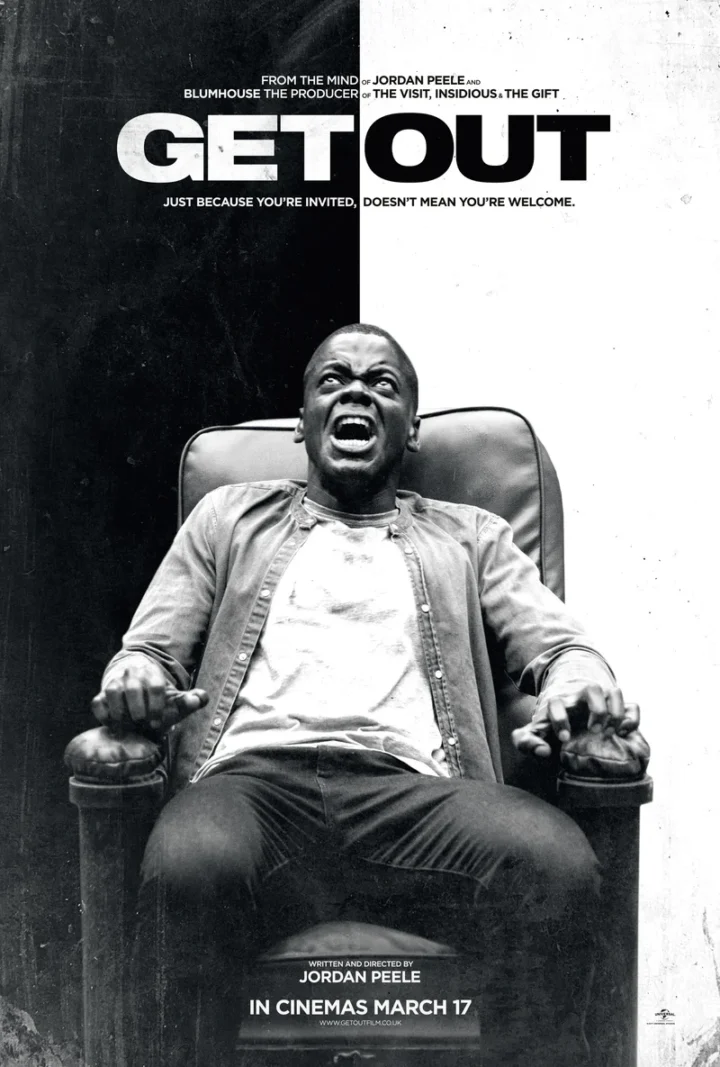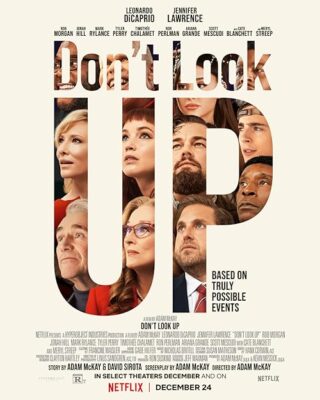

Plot, Themes, and Tone
Get Out, directed by Jordan Peele, follows the story of Chris Washington (Daniel Kaluuya), a young Black man who visits his white girlfriend’s family estate, only to uncover a disturbing and malevolent secret. The film explores themes of racism, identity, and cultural appropriation through a chilling and thought-provoking narrative. The plot is suspenseful, intelligent, and filled with allegorical layers. The tone of Get Out is eerie, unsettling, and deeply resonant, capturing the horrors of everyday racism and societal norms.
Acting and Characters
Daniel Kaluuya delivers a powerful and emotional performance as Chris Washington, portraying the character’s sense of unease and growing terror with depth and authenticity. The supporting cast, including Allison Williams, Bradley Whitford, and Catherine Keener, also deliver standout performances that add layers to the film’s complex and enigmatic characters. Each character in Get Out is a reflection of societal prejudices and the insidious nature of racism.
Direction, Score, and Cinematography
Jordan Peele’s direction in Get Out is masterful, blending horror, satire, and social commentary to create a film that is both terrifying and thought-provoking. The score, composed by Michael Abels, enhances the film’s suspense and adds to the sense of unease and dread. The cinematography is striking and atmospheric, capturing the tension and psychological horror of the narrative with visual precision.
Production Design, Special Effects, and Editing
The production design of Get Out effectively conveys the claustrophobic and sinister setting of the Armitage estate, adding to the film’s sense of paranoia and isolation. The special effects, while subtle, enhance the film’s moments of horror and psychological suspense. The editing is sharp and impactful, maintaining a tense pace that keeps viewers on the edge of their seats as the narrative unfolds.
Pace and Dialog
Get Out unfolds at a gripping pace, drawing viewers into its unsettling and nightmarish world with a sense of mounting dread and tension. The dialogues are sharp, incisive, and loaded with subtext, reflecting the characters’ inner conflicts and the societal dynamics at play. The intelligent exchanges between the characters add depth and richness to the film’s exploration of race, privilege, and power.
Emotional Impact and Audience Resonance
Get Out leaves a lasting emotional impact on viewers, immersing them in a world of psychological horror, social commentary, and visceral thrills. The film’s examination of racism, cultural appropriation, and the insidious nature of prejudice resonates with audiences, prompting reflection on the deep-rooted fears and anxieties of marginalized communities. Get Out’s masterful storytelling, bold performances, and sharp social critique make it a compelling and socially relevant cinematic experience that resonates in today’s society.
Audience Section
Audiences have been captivated by Get Out’s powerful storytelling, intelligent social commentary, and thought-provoking exploration of race and identity. The film’s blend of horror, satire, and psychological depth has garnered a dedicated following among fans of horror thrillers, social commentary, and genre-defying cinema. Get Out’s chilling narrative, standout performances, and profound social message continue to engage viewers seeking a cinematic experience that challenges norms, provokes thought, and sparks important conversations.
In conclusion, Get Out is a masterful and socially relevant horror thriller that deftly explores the complexities of race, privilege, and societal norms. Its compelling storytelling, intelligent themes, and bold social critique make it a must-watch for fans of thought-provoking and impactful cinema.




